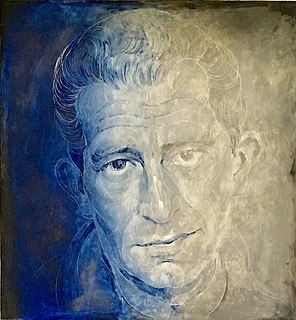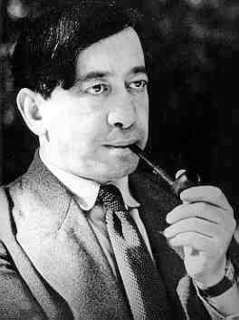A Quote by Ayn Rand
Every period ruled by mystics was an era of stagnation and want, when most men were on strike against existence.
Related Quotes
We are on strike, we, the men of the mind. We are on strike against self-immolation. We are on strike against the creed of unearned rewards and unrewarded duties. We are on strike against the dogma that the pursuit of one's happiness is evil. We are on strike against the doctrine that life is guilt.
In western civilization, the period ruled by mysticism is known as the 'Dark Ages' and the 'Middle Ages'. I will assume that you know the nature of that period and the state of human existence in those ages. The Renaissance broke the rules of the mystics. "Renaissance" means the "rebirth". Few people today will care to remind you that it was a rebirth of reason - of man's mind.
We are on strike against martyrdom—and against the moral code that demands it. We are on strike against those who believe that one man must exist for the sake of another. We are on strike against the morality of cannibals, be it practiced in body or in spirit. We will not deal with men on any terms but ours—and our terms are a moral code which holds that man is an end in himself and not the means to any end of others.
Strike against war, for without you no battles can be fought. Strike against manufacturing shrapnel and gas bombs and all other tools of murder. Strike against preparedness that means death and misery to millions of human beings. Be not dumb, obedient slaves in an army of destruction. Be heroes in an army of construction.
Revolution is engendered by an indignation with tyranny, yet is itself pregnant with tyranny.... An attempt to scrutinize men's thoughts and punish their opinions is of all kinds of despotism the most odious: yet this is peculiarly character of a period of revolution.... There is no period more at war with the existence of liberty.
Politically, the goal of today’s dominant trend is statism. Philosophically , the goal is the obliteration of reason; psychologically , it is the erosion of ambition. The political goal presupposes the two others. The human characteristic required by statism is docility, which is the product of hopelessness and intellectual stagnation. Thinking men cannot be ruled; ambitious men do not stagnate.
Rich and great people can take care of themselves; but the poor and defenceless - the men with small cottages and large families - the men who must work six days every week if they are to live in anything like comfort for a week, - these men want defenders; they want men to maintain their position in Parliament; they want men who will protest against any infringement of their rights.
If it is true to say of the lazy that they kill time, then it is greatly to be feared that an era which sees its salvation in public opinion, this is to say private laziness, is a time that really will be killed: I mean that it will be struck out of the history of the true liberation of life. How reluctant later generations will be to have anything to do with the relics of an era ruled, not by living men, but by pseudo-men dominated by public opinion.
. . . since being a Jew not only means that I bear within me a catastrophe that occurred yesterday and cannot be ruled out for tomorrow, it is-beyond being a duty-also fear. Every morning when I get up I can read the Auschwitz number on my forearm, something that touches the deepest and most closely intertwined roots of my existence; indeed I am not even sure if this is not my entire existence. Then I feel approximately as I did back then when I got a taste of the first blow from a policeman's fist. Every day anew I lose my trust in the world.
The flood of photos sweeps away the dams of memory. Never before has a period known so little about itself. In the hands of the ruling society, the invention of illustrated magazines is one of the most powerful means of organizing a strike against understanding... The 'image-idea' drives away the idea.

































